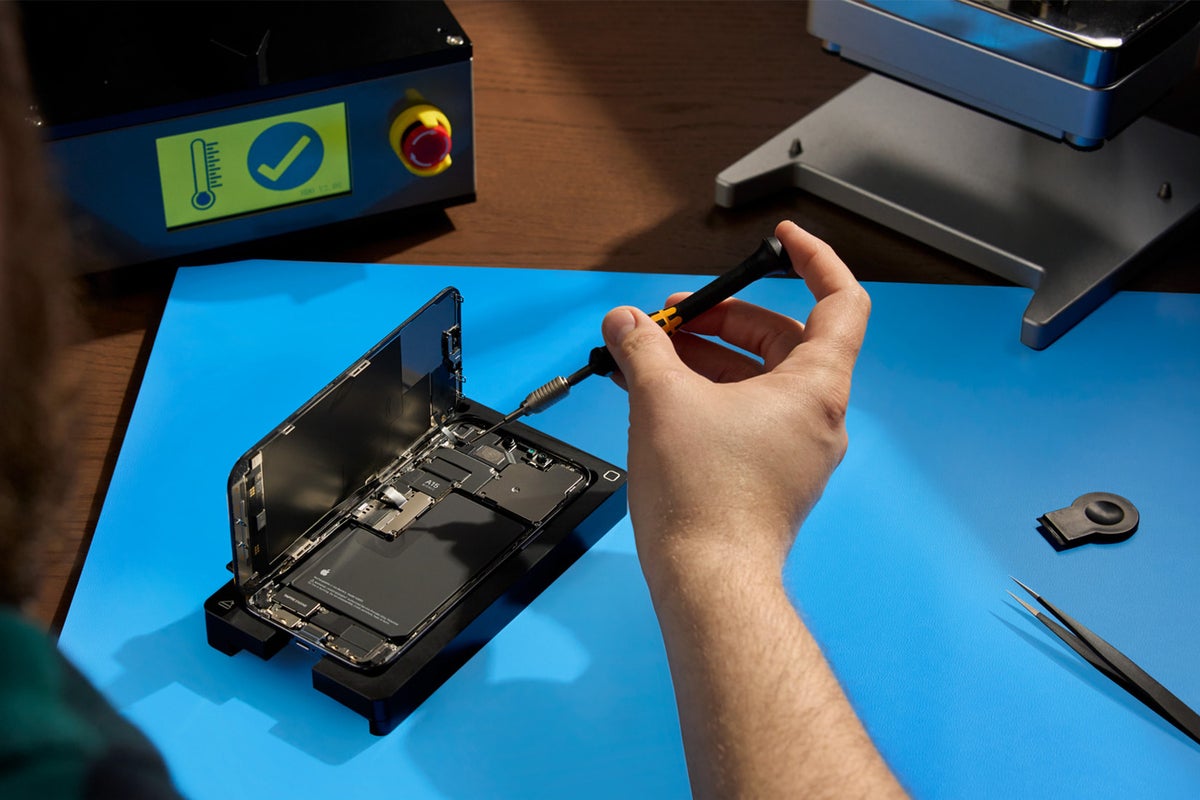Apple surprised us all when it pivoted to support California’s Right to Repair Act, which was signed into law this week. The SB 244 Act, which comes into effect on July 1, 2024, seems likely to have an international effect.
Making iThings last longer
The newly minted law makes California the third state after Minnesota and New York to enact such a regulation.
Apple endorsed the bill just weeks ago. When it voiced its support, Apple said it was doing so in order that all Californians “have even greater access to repairs while also protecting their safety, security, and privacy.”
What drives the law is the idea that it should be easy for customers purchasing consumer electronics to either repair devices themselves or take them to independent repair shops. The bill had achieved considerable support, including from tear-down and repair advocates iFixit.
“With access to original parts, tools, and documentation, independent repair shops will be able to compete again. And Californians across the state — accounting for about 1 out of every 8 Americans — will be able to fix things however they see fit,” iFixit said.
So, what are the rights that are coming into effect, and what do they mean?
Seven year rich
The law basically requires electronics device and appliance manufacturers to deliver up to seven years of repair coverage for almost all the gadgets they sell that cost $50 or more.
Devices that cost between $50 and $99
Device makers must stock replacement components, repair tools, and repair documentation for three years.
Devices that cost over $100
Device makers must stock replacement components, repair tools, and repair documentation for seven years.
These requirements are backdated, so any device sold in California since July 1, 2021, must get this kind of support. Essentially this means that affordable coffee percolator you purchased last year should be repairable.
There are some devices that don’t get this cover. These include game consoles, alarm systems, agricultural equipment, and equipment for forestry. The Justia legal resources site has a list of systems that are not covered by the act.
Apple already offers its own Self Service Repair scheme that should meet the terms of the Act. First introduced in 2021 in the US, the company continues to extend this scheme, which is now available across Europe and also in the UK.
What if a company can’t or won’t offer this support?
One reason Apple may have chosen to support the Californian approach is because it still permits parts pairing, in which companies maintain some control over components with software blocks.
This can make repairs more expensive, though Apple argues that use of legitimate parts is important to protect device safety and security. Right to repair advocates argue against this. I stand somewhere in the middle.
Companies that fail to follow the new Californian law will be punished. Those who violates the law three times or more will be fined…
2023-10-12 18:24:02
Post from www.computerworld.com rnrn
